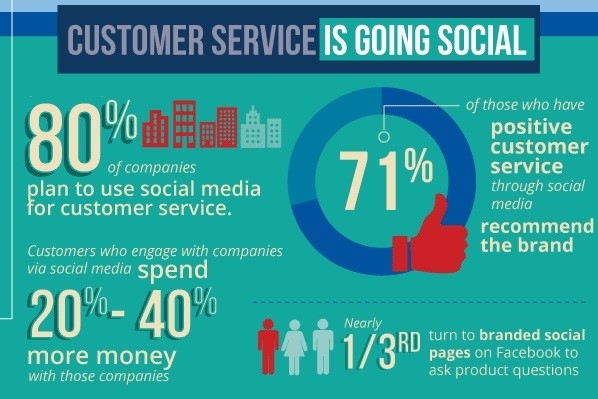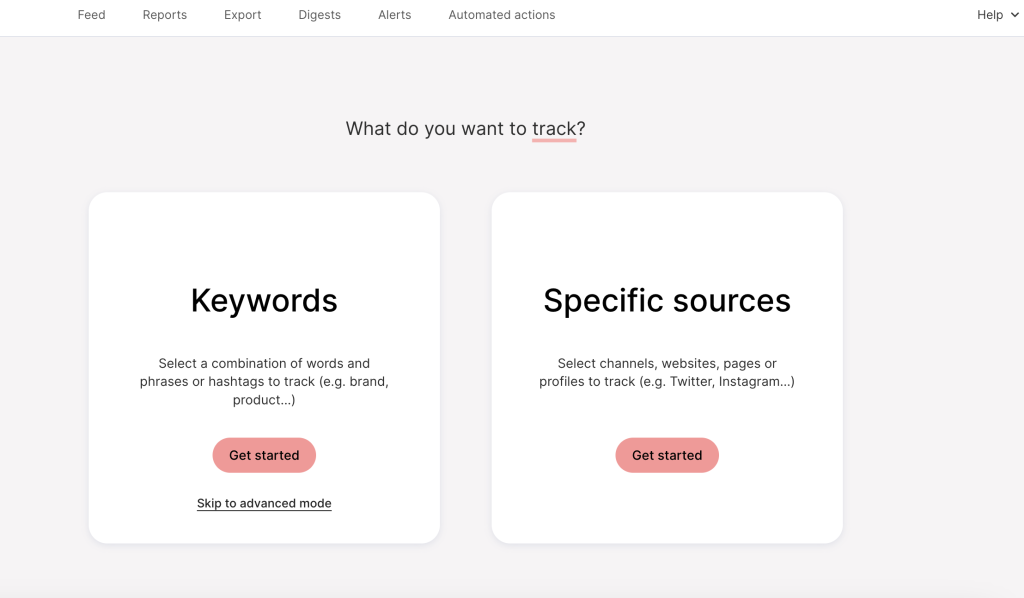Now more than ever, it’s essential for a business to protect its online reputation. Social media has made it easy for news to travel very quickly. Any problems and negativity your company faces can get out of control quickly and cause permanent damage to your reputation.
💡 Read Brand Reputation 101: Monitoring, Analysis, and Management Tools
The best way to mitigate this damage is to protect your online reputation from damage in the first place. This article will discuss what an online reputation is, some negative social media attention consequences, and the top seven ways to protect your online reputation.
What Is an Online Reputation?
Online reputation is the perception of a company or individual as it is portrayed on the internet. It depends on the organization’s content, how users react to it, and what is said about it on social media. In this sense, it is essential for all businesses nowadays, as they can affect a company’s credibility and visibility.

How Can Negative Social Media Comments Affect Your Business?
When someone (or many people) leaves negative reviews on your social media pages, it can have adverse effects on your whole business. Here’s how damaging social media affects your business.
- Turns Away Customers: Unhappy customers are likelier to take to social media to share their negative experiences, damaging your company’s reputation. As a result, potential customers may be less likely to do business with you, instead choosing to go with a company with better online reviews.
- Damages Your Online Community: If your page has a lot of negative reviews, people will be reluctant to trust you or want to be part of your community. This can damage your business in several ways, reducing your page’s traffic and impacting sales.
- Diminishes Your Customer Service Reputation: If customers feel they are not being heard or their concerns are being ignored, they will be far less likely to do business with you in the future. This can lead to a loss of sales and revenue and damage your brand’s image.
If social media noise gets too loud, your business may get a black mark on its reputation that it can never recover from. Therefore, you should put measures in place to ensure that you know exactly how to protect your online reputation when negative social media reviews and complaints come in.
The Top 7 Ways To Protect Your Online Reputation
Maintaining a positive online reputation is essential to sustained business success. If you want to avoid prolonged downtime due to negative comments that got out of control, you need to take steps to protect it.

1. Follow the rules when responding to customers
If you’re a business, following these three rules for customer feedback is essential to protect your online reputation.
- Respond quickly: When it comes to customer responses, the quicker, the better — for good or bad comments.
- Move the conversation out of the public eye: Don’t get into a back-and-forth on your company’s Twitter account. Use direct messages (DMs) or email.
- Always react positively: Some people wait for you to have an adverse reaction and make an even bigger deal about the problem. Reacting negatively will only make things worse. Ensure you respond reasonably and professionally.
By following these simple guidelines, you can ensure that any negative customer feedback is under control and doesn’t damage your online reputation.
Read Managing Online Reputation: 11 Things Agencies Need to Know
2. Avoid knee-jerk responses
It’s crucial to avoid knee-jerk reactions when responding to customer feedback online. Doing so can help to ensure that any response is measured and considered rather than being based on emotion. In addition, it’s essential to plan ahead for how you respond to different types of negative comments.
You must address complaints about products or services politely and professionally. So-called “review bombs” (negative reviews, opinions on hate sites, adverse media coverage on multiple sites) may require a more detailed and strategic response that considers the situation’s full context.
Whatever the nature of the comment, it’s important to remember that people are entitled to express their opinions. In the end, you must always try to maintain a respectful tone.

3. Set up keyword monitoring
You can use keyword monitoring software like the one from Determ to monitor your online reputation and identify what’s important.
The keywords you monitor will vary depending on your business and products. Some of those keywords might include company and product names, website addresses, the names of senior managers, competitors, expressions or phrases.
Here are some sample keyword monitoring phrases:
- [Business Name] is terrible
- [Product Name] is a ripoff
- [Competitor Name] is better than [Business Name]
Once you have this list, the next step is to set up alerts to track all mentions of these keywords in online conversations. This will help you stay on top of any negative sentiment or rumours that could damage your reputation.
It’s also important to keep an eye on your competitors, as they may try to capitalise on any negative sentiment around your brand. Therefore, monitoring their online activity with software such as Determ can help you avoid potential attacks on your online reputation.

4. Set out clear employee/company social media guidelines
Employers should set out clear social media rules for their employees. These rules should cover what platforms are allowed for business use, what employees can and can’t say or do on social media, and regulations on personal use. Staff should be given regular reminders of these rules to ensure that they stay informed.
Employers should also encourage whistleblowing among their staff. This means that employees are encouraged to report anything they see online which may be detrimental to the company.
Read Brand Audit: How to Do It in 6 Easy Steps
5. Learn from your mistakes
Businesses, whether online or in the physical world, make mistakes. Sometimes these mistakes can be forgiven. But sometimes they can cause lasting damage to the company’s reputation. It is vitally important for businesses to learn from their mistakes and take steps to protect their online reputation.
- Don’t try to stonewall criticism or stay silent.
- Respond quickly to customer complaints. If someone takes the time to leave a negative review or tweet about your company, make sure you address the issue as soon as possible.
- Ignoring the complaint will only make things worse.
- Have a solid crisis management plan, including steps for responding when something goes wrong.
- Have a designated spokesperson responsible for communicating with the media and customers.
Be transparent and open with your customers. When a mistake is made, admit it, apologize, attempt to fix it, and move on.
6. Create dedicated pages for customer feedback and interaction
If you’re not monitoring your social media regularly, you could miss out on important information about your company — both good and bad. In this sense, creating a safe space for your customers to leave comments is a must. Here are several ways to do it:
- Dedicated spaces: One way to protect your online reputation is to set up dedicated spaces on social media to respond to complaints and comments. This will help you to address any potential negative publicity quickly and effectively. It’s also great to show your customers you care about their satisfaction.
- Monitor consumer and industry-related forums and review sites: This will give you a better understanding of what people say about your brand and products. You can also use this information to improve your products and services.
- Be proactive rather than reactive. You can proactively protect your online reputation from potential damage by establishing dedicated spaces on social media and monitoring relevant forums and review sites.
Having a seperate area for customer feedback keeps everything organized, and will make life easier for everyone involved.
Read Online Reputation Management – Why Do You Need It

7. Get professional help if you need it
If online reputation problems get too severe, you should get professional help. This could include:
- Legal assistance to deal with defamation or false information
- Digital Marketing services to replace negative stories with positive ones
- Cyber investigations to uncover the source of attacks on your brand or company
With the proper support, you can protect your online reputation and keep your business running smoothly.
Bonus tip
Media monitoring tools like Determ offer an option of sending real-time notifications whenever your keyword is mentioned online. Determ, for example, has 2 types of real-time notifications, Spike and Smart alerts. Smart alerts are send whenever your keyword is mentioned online, and spike alerts when there is an unusual increase in the number of mentions of your keyword.
These alerts give you the opportunity to have full control over your online reputation – you can react on time if there is a crisis brewing, or if your brand is mentioned in a negative context.
Conclusion
Your online reputation is something that you must take seriously. There are many examples of companies that customers’ negative reviews or a poor handling of a situation turn from nothing into a media nightmare.
With these tips to protect your online reputation, you should have no problem keeping your online reputation up to par. Handle the matter professionally, privately, and quickly, and you should be able to move on to the next problem with minimal reputation damage.
Andrew Dunn is a serial business builder with over seven years of experience growing businesses. He is the founder of INDMND.com, providing valuable insights for business owners to leverage technology to 10x their businesses. He is passionate about scaling businesses using SEO, paid media, and remote teams.


